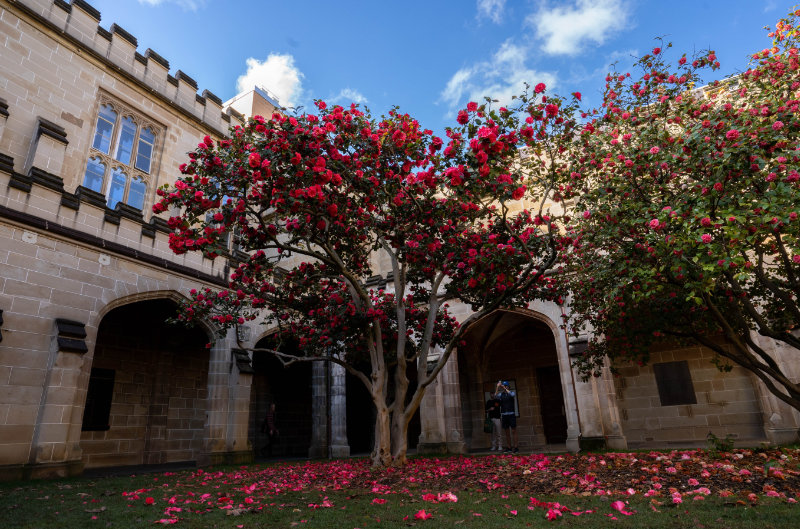Instructions & guidelines for submissions.
Abstract & Presentation Development Guide
To submit now, click the button below.
(Submissions close 22nd May)
TEFMA’s purpose is to guide and influence the transformation of the higher education built environment into a vibrant and sustainable community.
On the back of a successful inaugural TEFMA23 conference, TEFMA is forging ahead with its commitment to its members in providing opportunities/forum where we inspire each other to continuously grow and mature in our core service functions impacting progressively on the strategic directions of the tertiary education sector.
The TEFMA24 conference theme is The Fellowship of Ideas: Envisioning Tomorrow.
- Fellowship conveys our sense of community, collaboration, and shared purpose.
- Ideas are the essence of creativity and innovation, and the building blocks of progress, change, and solutions development.
- Envisioning awakens your imagining, conceptualising, and a forward-looking perspective that goes beyond the present.
- Tomorrow symbolises the future, the uncharted territory that lies ahead.
The ‘Fellowship of Ideas’ aspires to catalytically enhance the key service areas that TEFMA and its members focus on.
TEFMA24 will endeavour to provide enlightenment in these area:
- Envisioning tomorrow
- Agility to respond
- Continuous Improvement
- Sustaining sustainability
- Being Compliant
TEFMA24 Sub-Themes
This year’s sub-themes continue to cover TEFMAs key service areas as we did in last year’s conference, acknowledging the strong influence by sustainability, climate change and health, safety and wellness factors:
- Property, Planning & Development
The dynamic strategic direction influenced by the post pandemic new norm in the tertiary continues to demand an agile response from the universities’ enablers like us. Planning and development, and management of the built environment functions needed to adopt these new directions. - Engineering & Maintenance
Lifecycle management of each university’s built environment is a key in ensuring continuous delivery of teaching, learning and research activities and enriching the student experience on campus. Engineering & Maintenance sub-theme covers majority of the ‘cradle to grave’ looping activities of the buildings and its related services with infused technological elements. What continuous improvement initiatives have the sector implemented in response to that dynamic strategic direction and the key stakeholders’ needs? - Campus Services
Provision of beautiful, safe, secure and student centric campuses is a key component of facilities management. Enhancing this part of our services contribute greatly towards the staff as well as student experience. - Strategic Partnership and Leadership
Strategy, partnership and leadership forms cornerstone of success and efficiency, in particular in the planning, development and lifecycle management of the tertiary built-environment. Navigating the complex landscape of maintaining and optimizing physical spaces demands a cohesive approach that integrates these three pillars seamlessly.Universities are increasingly looking to partner with governments, other universities and tertiary institutions, research organisations and commercial organisations to formulate a clear strategy, cultivate meaningful partnerships, and exhibit strong leadership order to deliver infrastructure and services in new and innovative ways. Abstracts that fall within this stream may cover topics, such as:- Precincts (health, education, innovation, community)
- Government City Deals
- Industry Partnerships
- University Alliances
- Commercial Sector Student Housing
- Retail Operations

Special Interest Groups
TEFMA24 aims to touch upon all TEFMA’s special interest areas that encompass the fundamental FM functions that acts as the enabler for the tertiary sector to achieve their teaching, learning and research strategic objectives.
Master Planning
Long-term planning an important aspect of campus management in which some members specialise, to address future growth and change.
Space Planning
Activities that range from space planning for future change to monitoring and timetabling of institutional space.


Project Delivery & Management
Design and construction of new facilities and upgrade of existing premises including specialist areas in project and program planning and controlling, as well as in project execution and construction management.
Asset Management
Asset planning, monitoring, upgrading, maintaining, disposal, cost management and general effectiveness of the asset base.
Commercial and Retail
Management of commercial and retail premises on campus is a growing discipline as institutions support an expanding range of activities. Leasing, contract management and master planning, as well as the campus retail offering and overall customer experience are covered under this campus operation.


Facilities Services Operations
Maintenance and grounds management, cleaning and waste disposal, to effectively deliver the services to meet the needs of their institutions.
Grounds Management
Planning, implementation and maintenance of grounds and landscape.
Security, Parking and Emergency Management
Management of campus operations relating to security, parking and emergency management as campuses increase in complexity and population.
Benchmarking
TEFMA conducts a major annual benchmarking survey for its member institutions, reflecting operational and other facilities – related costs and statistics. Analysing and tracking this and related data to assist institutions in monitoring the progress of their organisations.


Business Continuity/Risk
Identification of organisational business threats, systematic response planning and a holistic management approach to dealing with risk is an area of increasing focus to improve the resilience of our member institutions.
Sustainability
Work on sustainability related activities e.g. energy, carbon, water and waste management, as well as environmental planning continues to expand for TEFMA members as institutions become more conscious of environmental responsibility and cost efficiency.
Instructions & guidelines for submissions.
Abstract & Presentation Development Guide
To submit now, click the button below.
(Submissions close 22nd May)